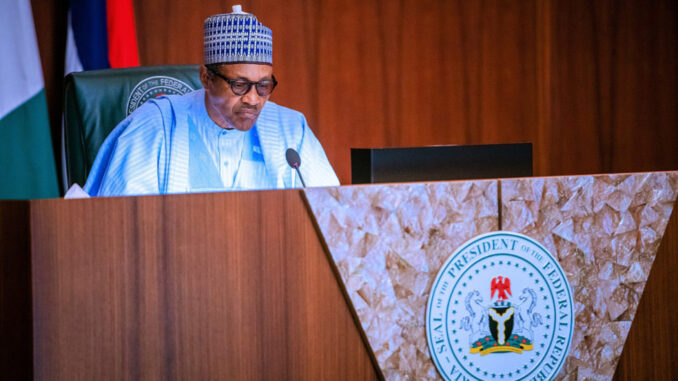
The Federal Government’s plan to sell some of its assets to cushion the current fiscal challenges the country is going through appears to be a case of penny wise, pound foolish.
The argument put forward by the authorities is that assets being scheduled for disposal were products of past national savings set aside to enhance the country’s gross capital formation and productivity.
Alas, with the advent of COVID-19, the downturn in the global oil market and the financial challenges resulting from these, instead of Nigeria cutting its coat according to its cloth by reducing unnecessary overheads, it has resorted to more borrowings and sale of existing assets. This is a case of selling one’s long-term investments to finance conspicuous consumption. It is difficult to understand how such decision making can help the growth of the Nigerian economy and build trust among the citizenry.
In relation to the disposal of public assets, reports indicate that the Bureau for Public Enterprises (BPE) is reviewing its 2020 Privatisation Work Plan to ascertain what assets to put on sale to raise money in supporting government efforts to finance the 2020 federal budget deficit of N5.37 trillion. From the BPE work plan, about N266 billion was scheduled to be realised as revenue from sale and commercialisation of public assets in 2020. In effect, this revenue is to be consumed this year and not to be ploughed into supporting new investments. Is that a viable way forward for a growing economy? Given that the deficit is the financial gap between the projected revenue and projected expenditure, it implies that the government prefers selling off assets and borrowing to reducing the cost of governance significantly.
In the first place, it is disheartening that the government should allow for such a humongous level of budget deficit to be sustained in the preparation of the revised budget. Why should the budget deficit be as high as N5.37 trillion? It can be recalled that the former Vice-President, Atiku Abubakar, faulted the latest review of the 2020 federal budget, saying that rather than reviewing the budget, the Federal Government should sell eight or nine of the presidential jets and cancel the N27 billion earmarked for the renovation of the National Assembly complex. This appears to make some sense to many Nigerians.
Why should the planned renovation of the National Assembly complex not be discontinued in view of the serious fiscal challenges the country is currently going through? Why should the presidency not drastically cut its overheads to win the confidence of the people? If anything should be disposed of at this moment, it should be the many presidential jets in the presidential fleet, which have constituted a serious economic drain on the country’s scarce resources, particularly at this period of economic and health emergencies.
The abuse in the use of the presidential jets was made so obvious when President Buhari’s daughter recently used one of the jets for her private outings. This is incredible, particularly when in 2015, the then-candidate Muhammadu Buhari pledged publicly that he was going to dispose of most of the Jets if voted into office, that they were a drain on the public purse. He eventually got elected and the narrative has changed ever since. This promise has not been fulfilled till the present. Nigerians are reminding Mr. President that this is the time to keep his words and save the country from further economic bleeding. In addition, why should the number, salaries and total emoluments of political office holders not be reduced drastically? At both the federal and state government levels, there is no justification for the humongous amounts being set aside as security votes, particularly when revenue inflows are seriously challenged as is currently the case.
Even as we question the propriety of the current proposal, there is a need to interrogate all the previous sales. Were these transactions transparent? Of what benefits have these previous sales been to the generality of Nigerians? If not, what would the sellers do differently now? Experience has shown that national heirlooms have been handed over to a few cronies in the past. Are we in for another round?
On the whole, the sale of redundant presidential jets and jettisoning of the renovation of National Assembly complex can be part of the signals this government needs to send to the Nigerian people about its desire to make sacrifices as the people are doing. In the midst of widespread misery and untold poverty of the majority, what leaders worthy of that description do is to be in sync with the led, substantively and symbolically. Living a sumptuous lifestyle when the citizens’ lives are under threat is a complete repudiation of the spirit of service, which should guide leadership. Not only can the country not afford the luxury the leaders are claiming, but it is also irresponsible to live it, even if available, in the present circumstances. This is not only of jets and cost of renovation but every hint of unnecessary material benefits to all public offices. Service is the name of the game. Service is what Nigerians should demand and service is what anyone in public office should give. Minimum comfort within reason is known and acceptable. But the roles of public servants, which leaders are, and their masters, which the people are, become reversed and corrupted when the former live extravagantly at the expense of the latter.
All told, the moderation of our leaders at this time should be known to all the people.
END

Be the first to comment